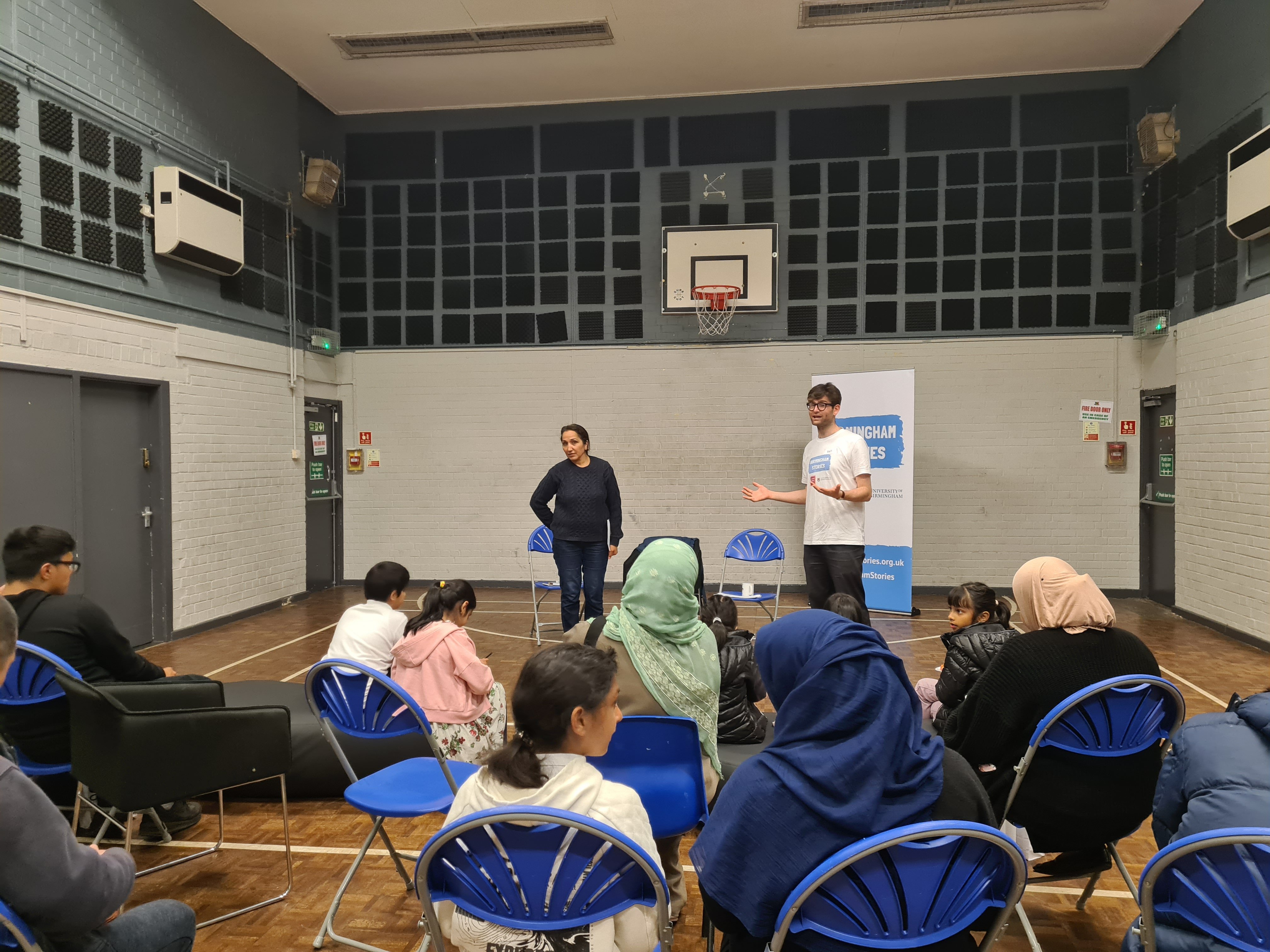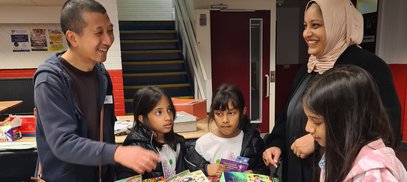Birmingham Manager, Kyle Turakhia, discusses a recent community survey into literacy challenges in Birmingham, and the campaign messages it has generated for the National Literacy Trust in Birmingham.
“I’m not a reader”.
“Books aren’t really my thing”.
“I can’t read anyway”.
As part of our literacy campaign in Birmingham, I regularly give out books at community events. I stand in front of young people with a range of free, brand-new titles – most of which are quickly snapped up and enjoyed.
But some of the teenagers can’t be tempted. I have become familiar with the bored sighs and variations of ‘not for me’ quoted above – which illustrate an entrenched sense of disengagement from books. Simply repeating to these young people that reading is important, or pressing a free book into their hands, will never be enough to break down this barrier. ‘Not a reader’ has become part of their sense of self, and requires more long-term, relationship-led, practice to shift.
In 2019, the National Literacy Trust partnered with the University of Birmingham – to establish a literacy hub dedicated to this work. It focusses on teenagers and adults – and aims to raise engagement with reading. We deliver across the city, but concentrate on the wards of Aston, Erdington, Nechells, Kings Norton and Sparkbrook, which data shows are in the top percentile of literacy deprivation.

Our strategy is place-based – we want to build a campaign for and with the people of those wards. Everything we do, therefore, happens in partnership – working with existing community initiatives to meet people where they are. We (a team of Birmingham resident staff, academics and volunteers) have spent the past few years introducing ourselves to local schools, libraries, youth centres, charities, and residents – collaborating on reading focussed events, workshops, and sustained interventions.
Last year, we decided to take stock of our position and run a community survey about literacy in Birmingham. This had two main objectives:
- To quantify the literacy challenge, as experienced by the practitioners and people we work with across the city
- To develop unifying ‘messages’, which express the value of reading in our community’s own terms; and guide our ongoing activity.
The survey reached 110 practitioners and 373 community participants, which we followed with a meeting with 20 partner organisations to draft new campaign messages based on the results; and a vote run in five youth centres across the city, to assess which of these slogans was most popular.
The survey and follow up consultations ultimately prompted us to focus our campaign on the theme of connection – and led to three core campaign messages:
- Stories connect us
- Reading connects us to opportunities
- Reading connects us to our interests
The full report which can be found here summarises the survey and process we used to arrive at these messages.
